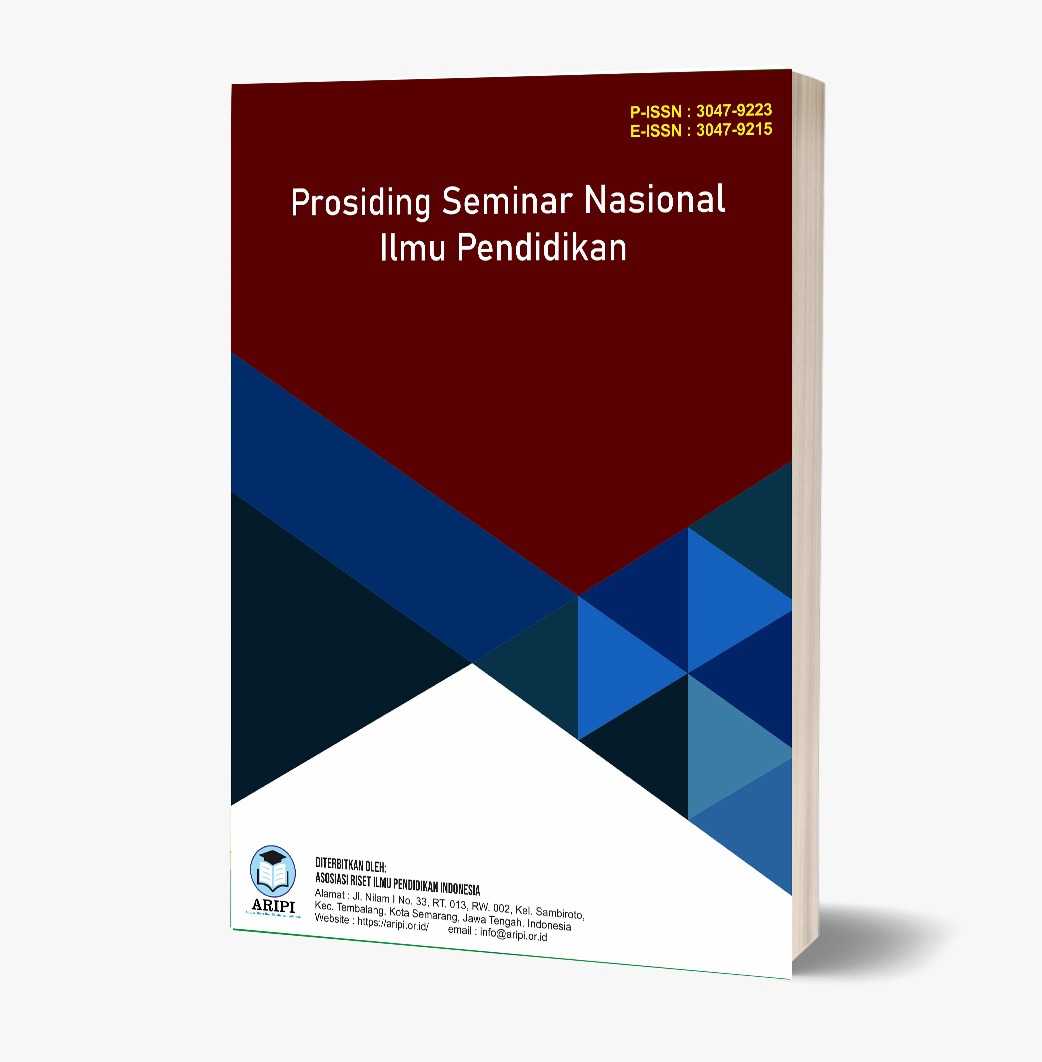Psychological Well-Being Istri yang Tinggal Bersama Mertua di Kampung Pengasinan Kidul, Kabupaten Serang
DOI:
https://doi.org/10.62951/prosemnasipi.v2i1.133Keywords:
Wife, Living with In-Laws, Psychological Well BeingAbstract
In the context of Indonesian culture, living with parents or in-laws is quite common, especially for young couples who are not yet financially independent. However, dynamics in the household such as differences in values, habits, and privacy boundaries often pose psychological challenges for wives. This study aims to describe the psychological well-being of wives who live with their in-laws after marriage. This study uses a qualitative approach with an in-depth interview method with one of the informants who meets the criteria, namely women who have been married and have lived with their in-laws for at least one year. The results of the study indicate that there are various aspects of psychological well-being that are influenced by the condition of living with in-laws, including self-acceptance, autonomy, positive relationships with others, and mastery of the environment. Factors such as partner support, open communication, and adaptability are the main determinants in maintaining the psychological well-being of wives in this situation. This study is expected to provide insight for young couples and families in building harmonious relationships in a household involving more than one generation..
References
Asminatun, T., Noviekayati, I., & Ananta, A. (2023). Keharmonisan keluarga pada wanita yang tinggal di rumah mertua: Bagaimana peran kematangan emosi dan penyesuaian diri? INNER: Journal of Psychological Research, 3(3), 419–426.
Dewi Munadiah Hasrullah, Khumas, A., & Jafar, E. S. (2023). Hubungan kesejahteraan psikologis dengan penyesuaian diri pada istri yang tinggal bersama mertua. PESHUM: Jurnal Pendidikan, Sosial dan Humaniora, 2(4), 636–645. https://doi.org/10.56799/peshum.v2i4.1811
Diri, P., & Mertua, R. (2018). [Review of psychological well-being and adjustment in in-law households]. Graduate Journal of Food Studies, 5(2). https://doi.org/10.21428/92775833.d1e3721f
Distina, P. P. (2019). Pengembangan dimensi psychological well-being untuk pengurangan risiko gangguan depresi. Mawa’Izh: Jurnal Dakwah dan Pengembangan Sosial Kemanusiaan, 10(1), 39–59. https://doi.org/10.32923/maw.v10i1.768
Ilmiah, J., & Indonesia, M. (2024). Mutiara. Mutiara: Jurnal Ilmiah dan Pendidikan Indonesia, 2(4), 41–50.
Mahasiswa, P., & Bekerja, Y. (2024). Kebersyukuran dan optimisme terhadap kesejahteraan psikologis mahasiswa yang bekerja. Jurnal Psikologi dan Kesejahteraan, 16(2), 102–110.
Noviasari, N., & Dariyo, A. (2016). Hubungan psychological well-being dengan penyesuaian diri pada istri yang tinggal di rumah mertua. Psikodimensia, 15(1), 134.
Nurchayati, S. W. K. (2022). Psychological well-being pada istri yang memiliki pasangan penyandang tuna netra. Character: Jurnal Penelitian Psikologi, 9(6).
Of, J., & Education, I. (2023). Psychological well-being perempuan yang... Journal of Education and Psychology, 4(2), 70–80.
Pangemanan, A. D., Tiwa, T. M., & Kaumbur, G. E. (2022). Perbedaan psychological well-being pada wanita yang tinggal dengan orangtua atau mertua. Jurnal Psikologi dan Keluarga, 3(4), 335–339.
Puccetti, N. A., Schaefer, S. M., van Reekum, C. M., Ong, A. D., Almeida, D. M., Ryff, C. D., Davidson, R. J., & Heller, A. S. (2021). Linking amygdala persistence to real-world emotional experience and psychological well-being. Journal of Neuroscience, 41(16), 3721–3730. https://doi.org/10.1523/JNEUROSCI.1637-20.2021
Rohma, R. N., & Syah, A. M. (2021). Psychological well-being pada wanita. Conseils: Jurnal Bimbingan dan Konseling Islam, 1(1), 21–30. https://doi.org/10.55352/bki.v1i1.93
Ryff, C. D. (2023). Contributions of eudaimonic well-being to mental health practice. Mental Health and Social Inclusion, 27(4), 276–293. https://doi.org/10.1108/MHSI-12-2022-0091
Sari, M. A., & Monalisa, A. (2021). Psychological well-being karyawan: Studi literatur. Syntax Idea, 3(1), 161–170.
Sumakul, Y., & Ruata, S. (2020). Kesejahteraan psikologis dalam masa pandemi COVID-19. Journal of Psychology “Humanlight,” 1(1), 1–7. https://doi.org/10.51667/jph.v1i1.302
Wigunawati, E. (2019). [Article title unclear]. Jurnal Psikologi dan Pendidikan, 2(2), 185–197.
Wulansari, O. D., & Setiawan, J. L. (2019). Hubungan antara psychological well-being dan marital adjustment pada remaja. Psychopreneur Journal, 3(1), 36–46. https://doi.org/10.37715/psy.v3i1.906
Downloads
Published
How to Cite
Issue
Section
License
Copyright (c) 2025 Prosiding Seminar Nasional Ilmu Pendidikan

This work is licensed under a Creative Commons Attribution-ShareAlike 4.0 International License.







